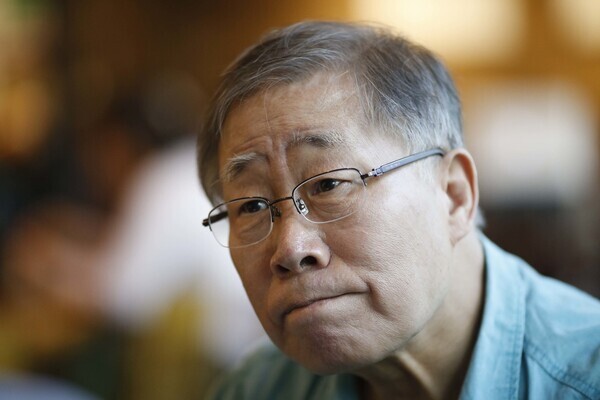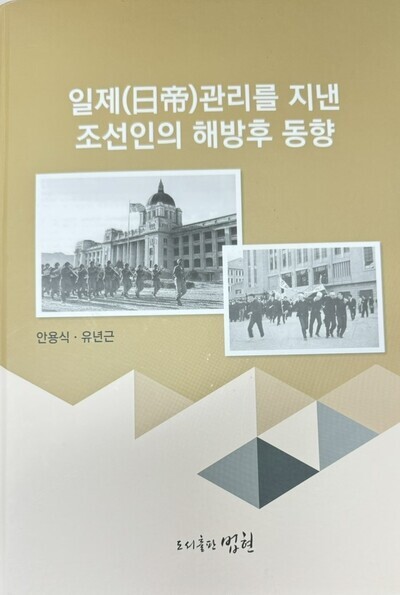
Ahn Yong-sik, professor emeritus at Yonsei University. (Kim Bong-gyu/Hankyoreh)
The book “The Activities of Koreans Who Served as Officials under Japanese Colonial Rule After Liberation,” published by Buphyun, was recently co-authored by Ahn Yong-sik, professor emeritus of the Department of Public Administration at Yonsei University, and You Nyeon-geun, a researcher at the Institute of Local History at Hanam Cultural Center. Ahn has previously published several volumes tracing the appointments and activities of Korean officials from the late Joseon period to 1967.
Based on his nearly 35 years of research, Ahn has documented how Koreans who served as civil servants during the Japanese occupation were appointed to public office during the U.S. military government rule and in the Third Republic of Korea.
The book includes an essay of the same name by Ahn, which shows that 49.1% (787 people) of Korean personnel of the U.S. Military Government in Korea (USAMGIK) were former officials under Japanese rule. In addition, 40.7% (262 people) of local government officials, 70.8% (211 people) of judges and prosecutors, and 70.4% (133 people) of district governors under the USAMGIK previously held official positions during the Japanese occupation.
While the USAMGIK headquarters, which served as the country’s central administration, appointed relatively few Koreans who had served under the Japanese, many of those chosen were highly educated individuals who had studied in Japan. In the six departments of the USAMGIK headquarters, 44 of 99 former Japanese officials had at least a junior college degree, and 20 of them were graduates of Japanese universities and the Imperial Keijo University.
“During the Japanese occupation, the rich, who came from good families and had talent, went to Japan to study, worked hard and became high-ranking bureaucrats. These people rose to high public office even after liberation,” Ahn said in a telephone interview on Wednesday.
“Although I did not mention it in the newspaper, I understand why many people criticize those who benefited from Japanese rule (Korean officials during the Japanese occupation). After all, many impoverished Koreans suffered greatly under the Japanese,” he said.

The cover of Ahn’s new sourcebook “The Activities of Koreans Serving as Officials under Japanese Colonial Rule After Liberation.”
Of the two years and eleven months of U.S. military rule, he noted, “It left us very little” and called it a “failure.” He added, “The U.S. military government directly took over the administrative system of the Japanese General Government of Chosen (Korea). In essence, it was a continuation of Japanese rule.”
In his article, Ahn criticized the USAMGIK for its “indiscriminate appointment of collaborators under the pretext that they were only in office temporarily,” which he considers the organization’s biggest mistake. He pointed out that the US military “lacked the necessary effort and attitude to carefully solve problems in a foreign country (Korea).”
When asked about his future projects, Ahn, who has self-published all of his previous works, stressed the need to “document who controlled the bureaucracy and how the bureaucratic system functioned from the Park Chung-hee regime to the present.”
However, he noted: “The task is so great that it will be difficult for me to undertake it due to my age and declining strength. I hope that future scientists will continue this work.”
By Kang Sung-man, senior editor
Please direct any questions or comments to ([email protected])
